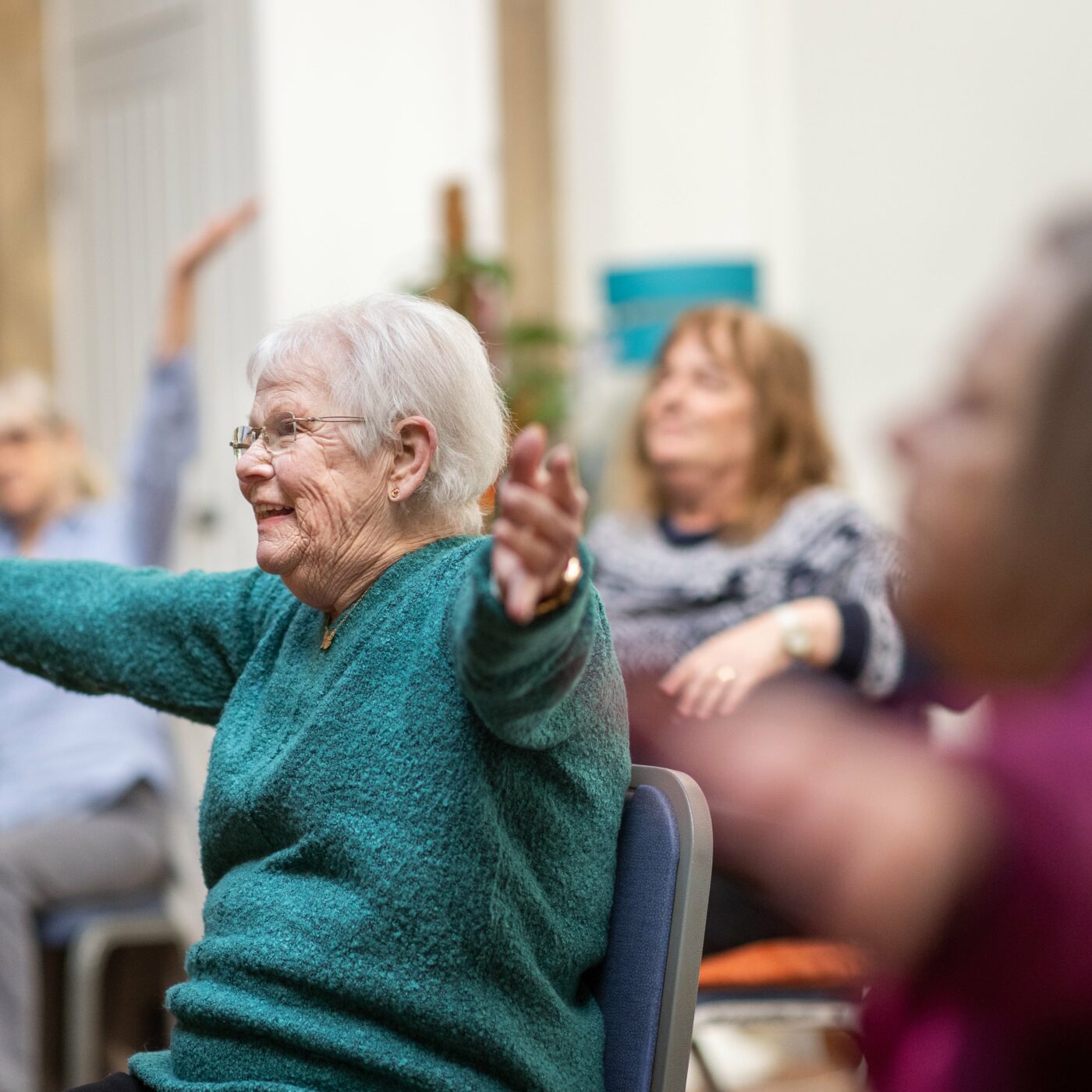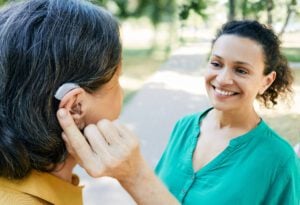Arthritis in the elderly – causes and care options
Tags
Complex Care
Arthritis is an inflammation of the joints which can cause pain, and swelling. What causes arthritis itself will depend on which type a person has been diagnosed with. Osteoarthritis, the UK’s most common type of arthritis, doesn’t have an exact known cause, however injuring or overusing your joints, obesity, and a family history of the condition can increase your risk.
Here are 6 facts about arthritis.
Different types of arthritis have different causes and can lead to different kinds of pain and discomfort. Some of the most common types are –
Everyday life exposes our joints to constant damage. However, usually this damage is low level – meaning the body can repair it before we feel any adverse effects.
However in cases of OA the smooth cartilage (think of it as a ‘shock absorber’) in our joints gets thinner and rougher which makes movement more difficult and lead to pain and stiffness.
People with OA may also feel a grating, popping or cracking when using their joint, and the formation of extra bits of bone around the affected joint.
While the exact reason why this happens is unknown, there are a number of factors that can contribute to a higher risk of developing osteoarthritis –
- Joint damage from a previous injury
- Using a joint too quickly after an injury or operation
- Being older
- Having a family history osteoarthritis
- Being overweight
- Being a woman
Rheumatoid Arthritis is less common that osteoarthritis, and tends to effect people earlier in life too – usually presenting symptoms among people between 30 and 50 years old.
it’s an autoimmune disease, meaning it’s caused by the body attacking itself. In this case, the immune system attacks the cells that line your joints – causing swelling. It may eventually lead to the joints changing shape as well as lasting damage to the cartilage and nearby bone.
Again, the exact reason why this happens isn’t really known. However you are more susceptible to rheumatoid arthritis if you –
- Are a woman
- Are a smoker
- Have a family history of the condition
Often described as one of the most acutely painful types of arthritis – gout can cause sudden and intense bouts of joint pain. Pain is most commonly in the big toe, but can also appear in the feet, hands, wrists, elbows and knees. People may also experience hot, swollen and red skin on the affected area.
Gout is caused by a buildup of uric acid in the blood – too much uric acid can lead to sharp crystals forming in and around the joints, which are responsible for the painful symptoms.
Usually our kidneys do a good job of filtering out excess uric acid. However there are a few things that can contribute to a build up and trigger gout –
- If you’re ill and have a high temperature
- If you drink too much alcohol
- If you eat a lot of large or very fatty meals
- if you’re dehydrated
- if you take certain medication, such as diuretics or medicine for high blood pressure
There are lots of other types of arthritis too, such reactive arthritis, which is brought on after an infection in the gut, bowel or throat, and psoriatic arthritis which is another autoimmune disease which can affects around 30% of people living with the skin condition psoriasis.
To learn more about the causes of these rarer forms of arthritis, visit the NHS website.
Arthritis flare-ups can occur in almost all forms of the condition – they can come on unexpectedly and cause a range of symptoms depending on your type of arthritis, from intense pain and joint stiffness to fever and fatigue.
Identifying and avoiding any common triggers is a good first step if you’re prone to flare ups. For example, osteoarthritis can be caused by too much physical activity putting additional stress on the joints. OA flare ups may also be made worse by the weather. Many people living with arthritis have reported that changes in pressure, and particularly cold or humid weather can lead to worsening symptoms.
However it’s worth noting that flare-ups are unpredictable and won’t always have avoidable triggers. For example, a flare up may start suddenly after an illness, such as a UTI, or a period of stress.
If a joint is sore, but not swollen, applying heat may ease the pain, either using a hot water bottle or heating pad, or by taking a bath or shower if the pain is more widespread. For swollen joints cold therapy is usually recommended. Applying a cold compress such as a damp washcloth or a bag or frozen peas wrapped pillowcase to the affected area may provide relief.
Arthritis pain can really restrict your quality of life, but making small, considered changes to how you do daily tasks could make a big difference to.
Allowing yourself extra time during tasks, and taking short rests in between activities can help keep your joints moving and prevent stiffness without overexerting yourself.
You can try changing how you perform certain activities too. For example, when shopping you may find it easier on your joints to spread the weight across two small bags instead of one big one, and to use a trolley instead of a basket.
While it’s important to listen to your body and rest when you need to, the NHS suggests avoiding sitting in the same position for too long. Even getting up regularly to make a cup of tea can help keep joints moving.
Some people may feel their arthritis isn’t ‘bad enough’ to warrant installing additional safety measures around the home. However, there’s no shame or harm in making your home as accessible as possible. Installing hand and grab rails in the shower and by the toilet, moving essential items and appliances within easy reach, and fitting levers to taps to make them easier to turn can all help make daily life a little bit easier.
Many people continue to drive after an arthritis diagnosis. However, if you have arthritis and use special controls for driving you’ll need to inform the DVLA. You can be fined up to £1,000 if you don’t tell DVLA about a medical condition that affects your driving.
Dr.Scarlett McNally on the Importance of Keeping Active at Any Age
Scarlett McNally is the Consultant Orthopaedic Surgeon at Eastbourne District General Hospital, and a member of the Council of the Royal College of Surgeons. We spoke to her about two hard-hitting papers she authored outlining exercise as both a ‘miracle cure’, and a crucial step in avoiding unnecessary social care.Absolutely. While pain and stiffness can impact quality of life if left untreated, there’s no reason why an older person should need to move into a care home for arthritis alone.
A professional carer, such as a live-in carer will be able to support the daily management of arthritis symptoms, and help establish a healthy daily routine that may help identify triggers and minimise flare ups.
A home carer can –
- Encourage regular exercise to keep the joints moving and minimise pain and stiffness.
- Know when to offer help and when it’s a good time to stand back
- Encourage positive two-way communication, and provide meaningful companionship
- Learn to recognise the signs when your symptoms are bad
- Support with daily tasks around the home – especially things like vacuuming or dog walking which may involve repetitive motions or a lot of physical exertion
- Support your dietary and nutritional needs – this may include establishing an anti-inflammatory diet or whole, unprocessed foods, or preparing healthy low calorie meals if you’re prone to gout and are following weight loss advice from your doctor
- Assist with daily activities and errands – spacing out high intensity activities to ease the stress on your joints and avoid fatigue
- Help with personal care – brushing your hair if gripping a brush is difficult, helping with bathing, and doing up fiddly buttons and fastenings on clothes.
This article is for informational purposes only and not to be taken as medical advice. For medical advice, always consult your GP.
Learn more about complex care
Take a look at more Elder guides on how to support those living with complex conditions below.

Can I arrange nursing care at home?
Nursing care is provides care and treatment to people with complex medical conditions, but is it possible to receive it at home? We take

Living well with diabetes in later life
It’s estimated that over a third of people with diabetes in the UK are over 65 years of age. That’s around 1.5 million people.

Caring for different types of hearing loss
According to Age UK, hearing loss affects around 12 million adults in the UK. People with hearing loss may not always require specialist care

Vision loss in older people – Is there a cure, and how can it be cared for?
Vision Loss Care: Is There a Cure? Your loved one may develop signs of vision loss as they grow older. However, there are ways

Motor neurone care: How do I care for a loved one with motor neurone disease?
Motor Neurone care: How do I care for a loved one with Motor Neurone Disease? A diagnosis of Motor Neurone Disease, commonly referred to

Arthritis in the elderly – causes and care options
Arthritis Care: What Causes Arthritis in the Elderly? Arthritis, which causes painful and inflamed joints, can affect anyone at any age. However, we
